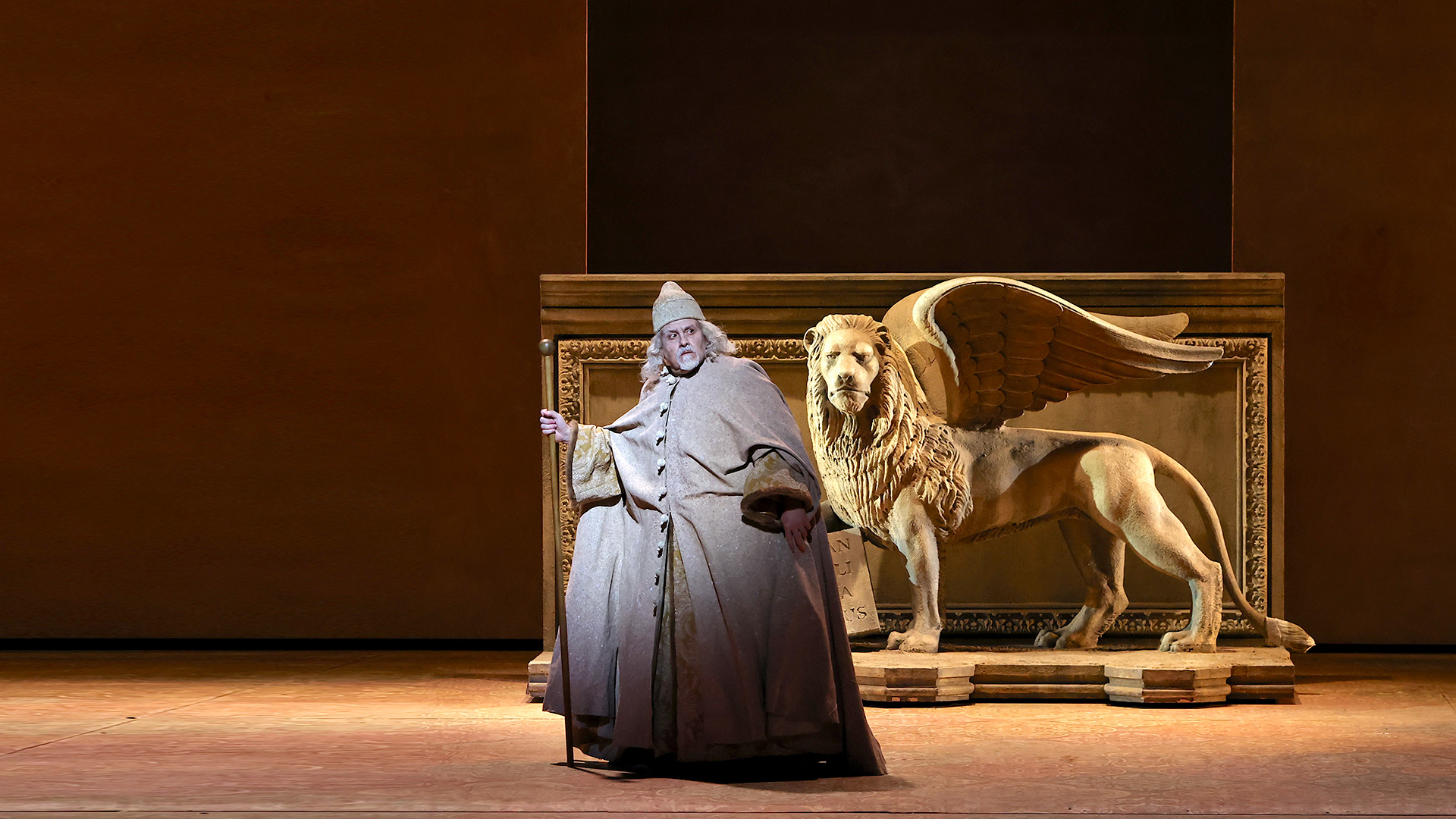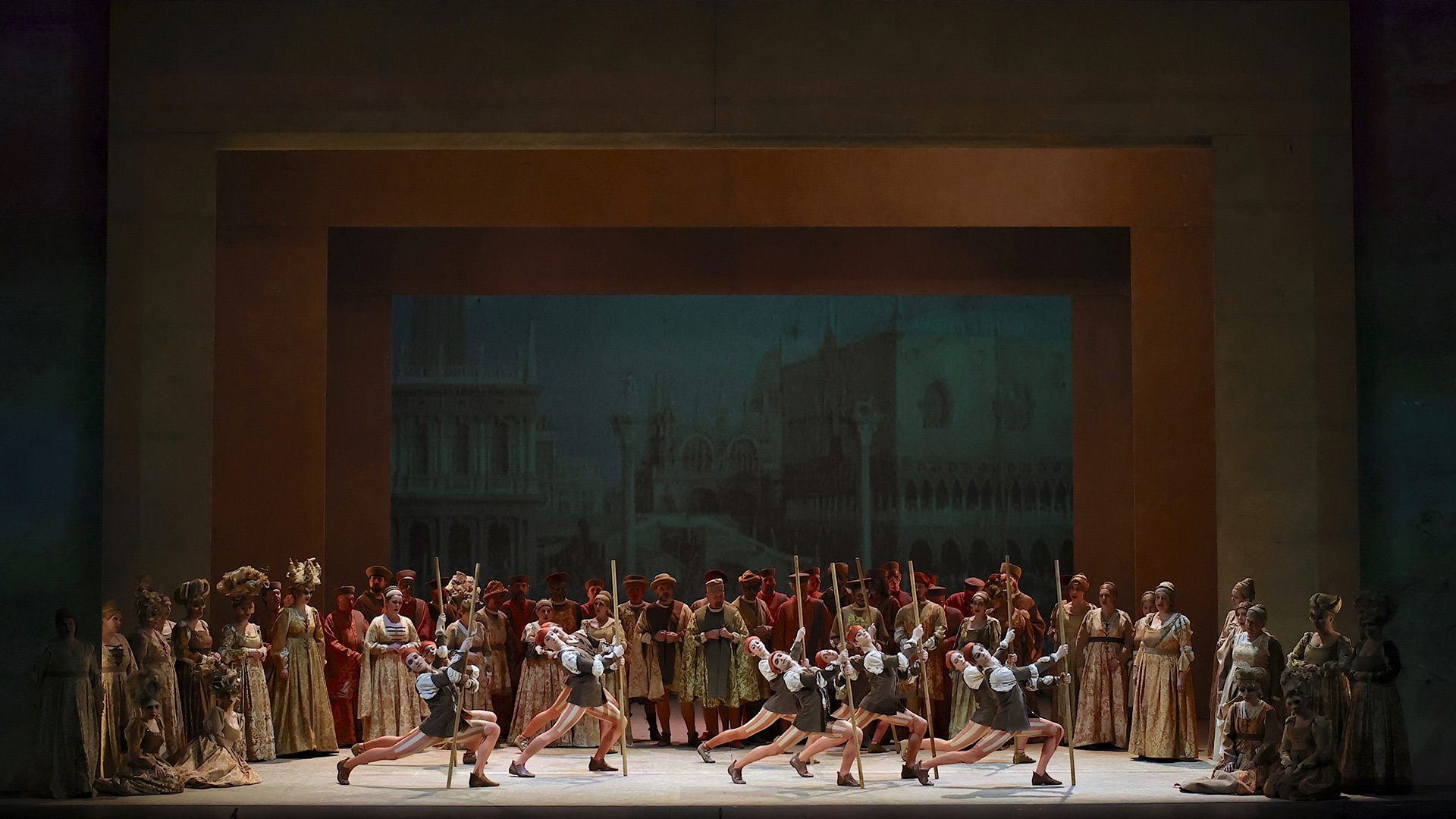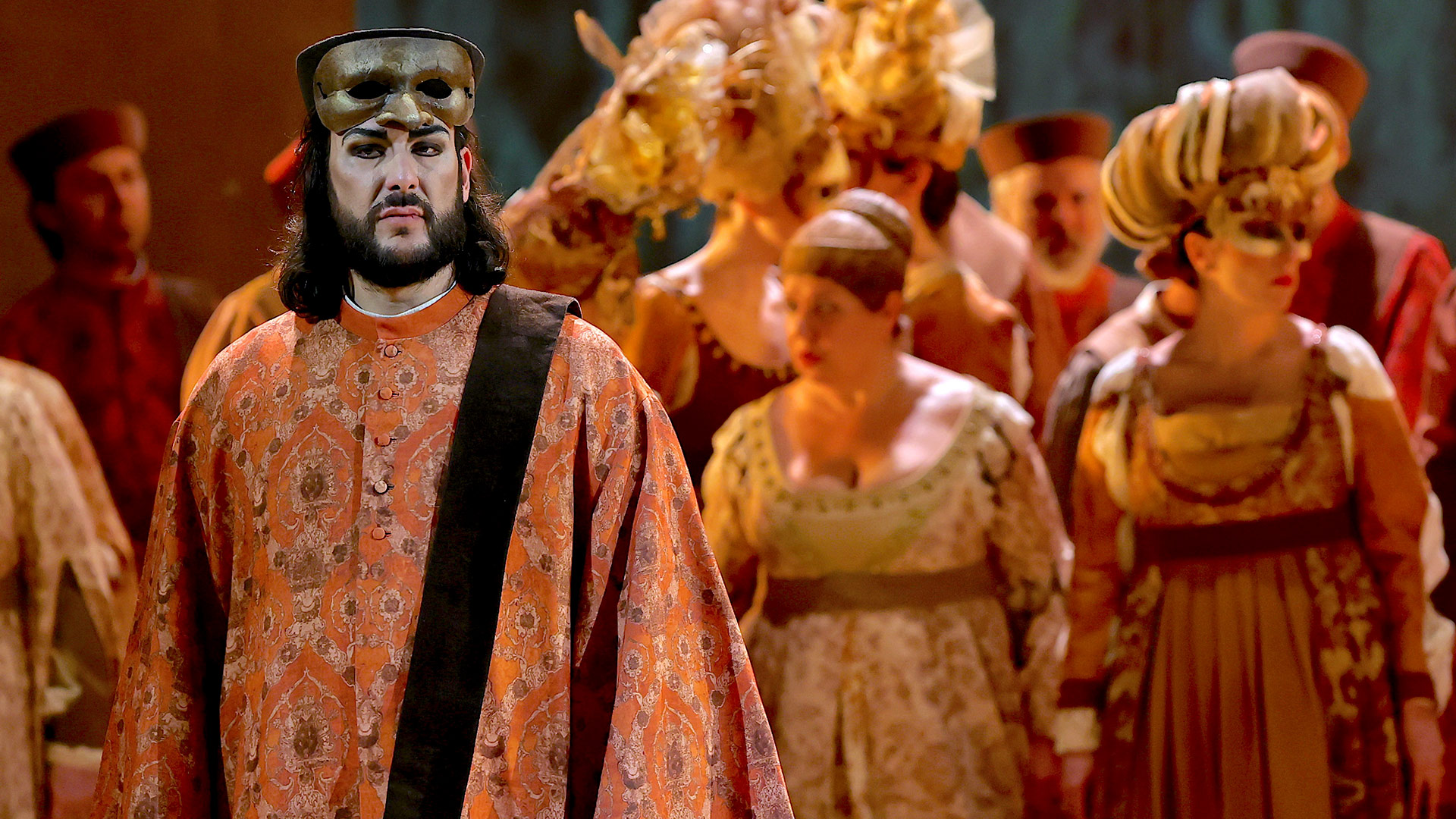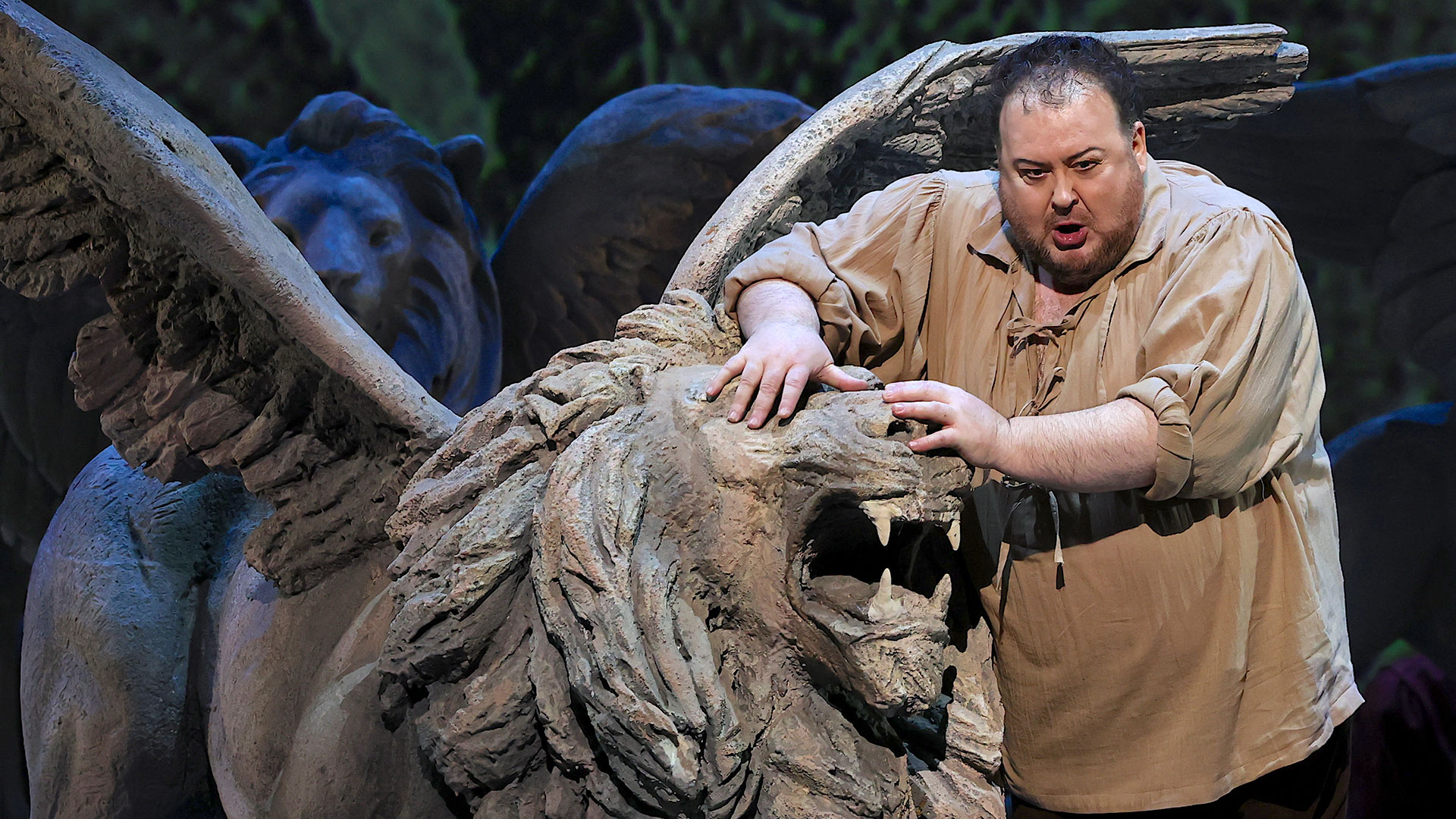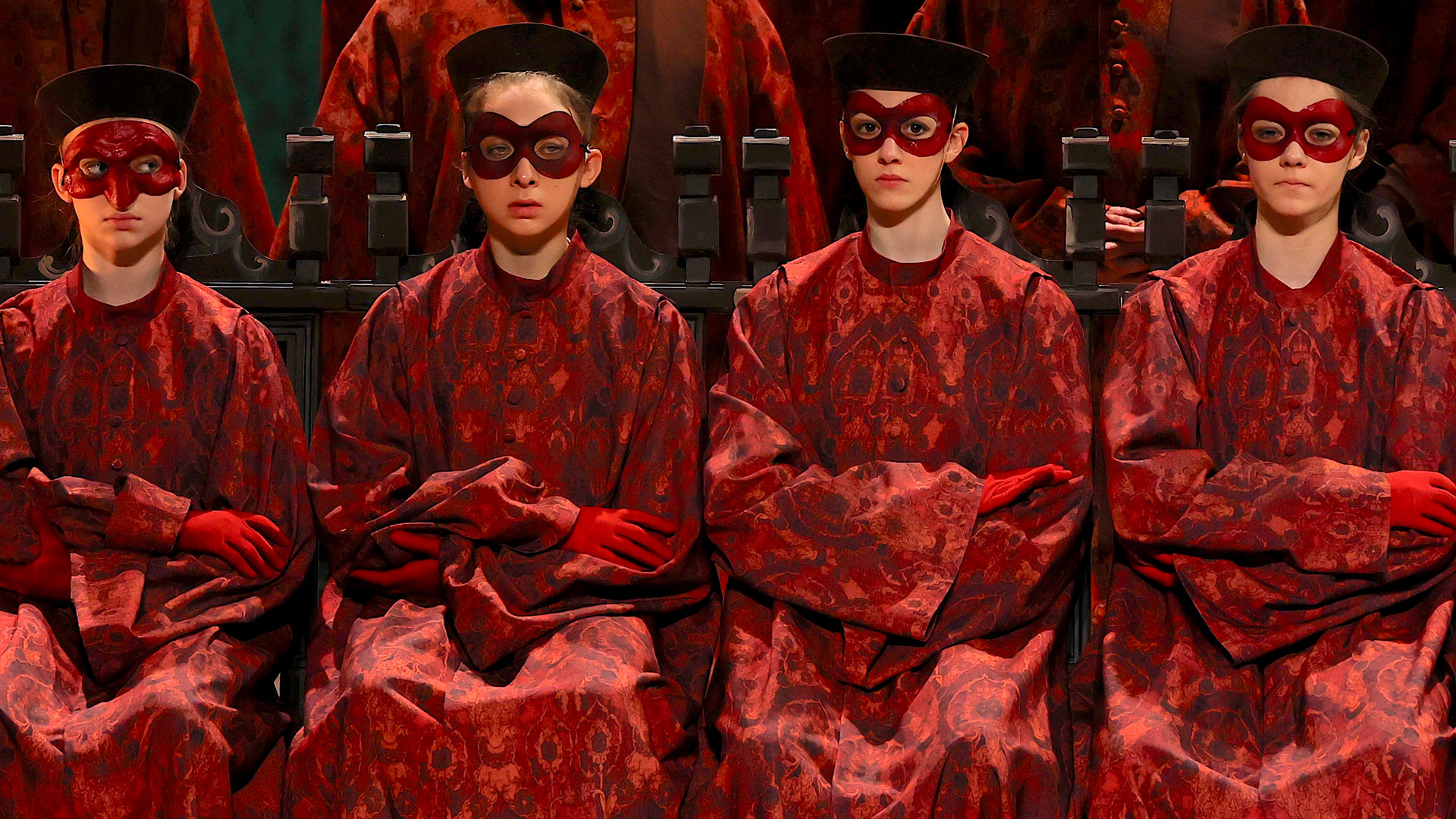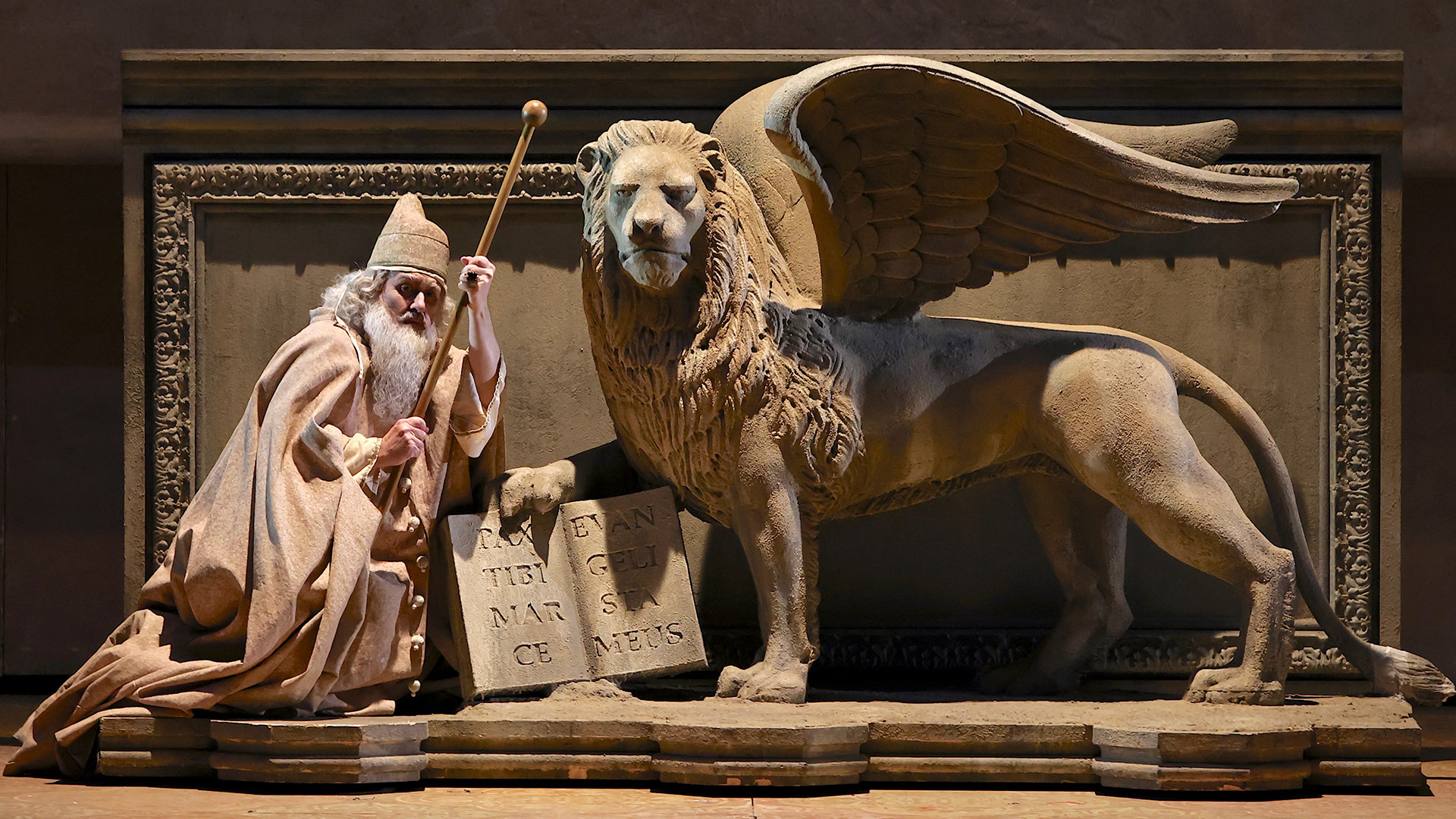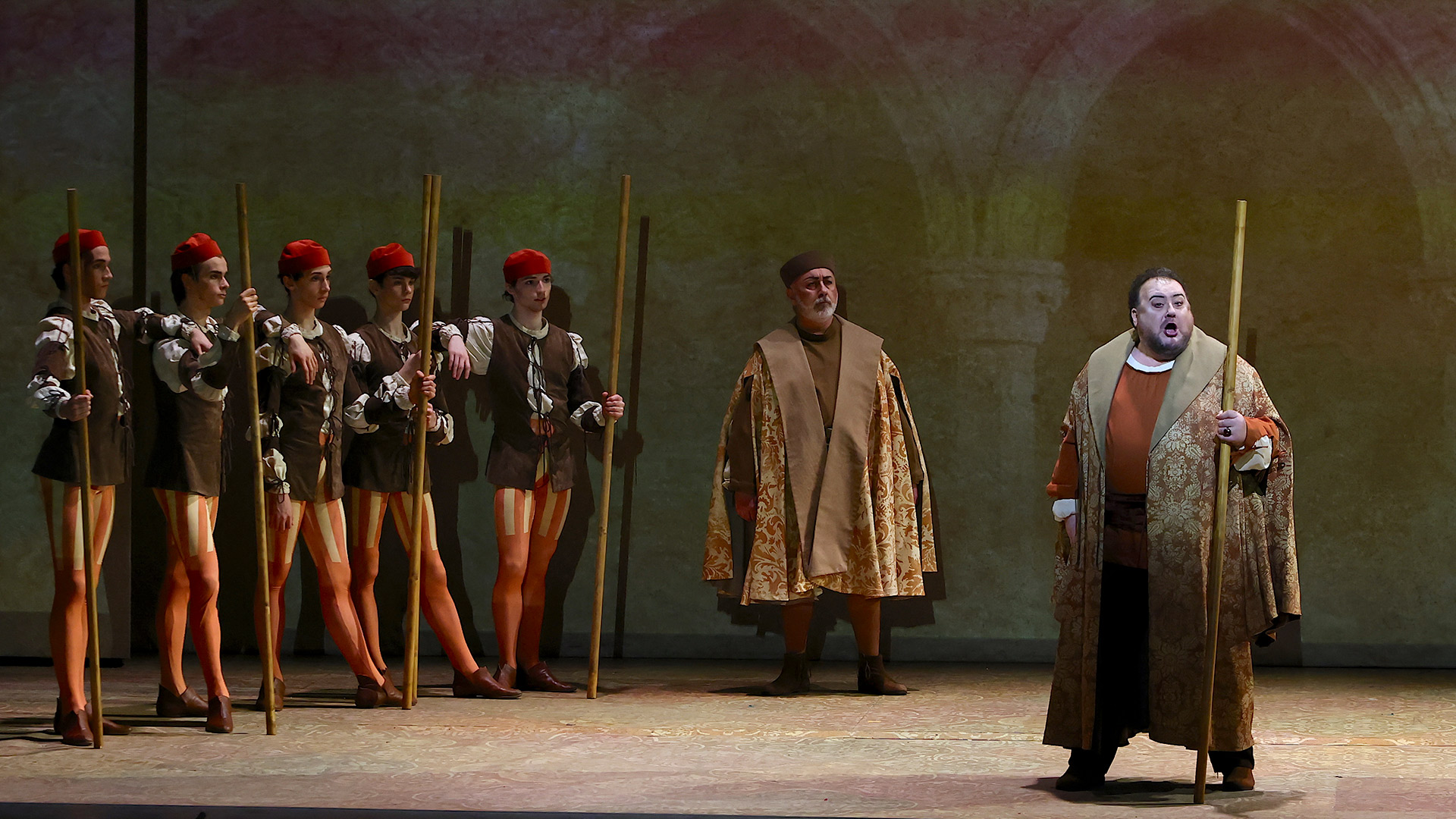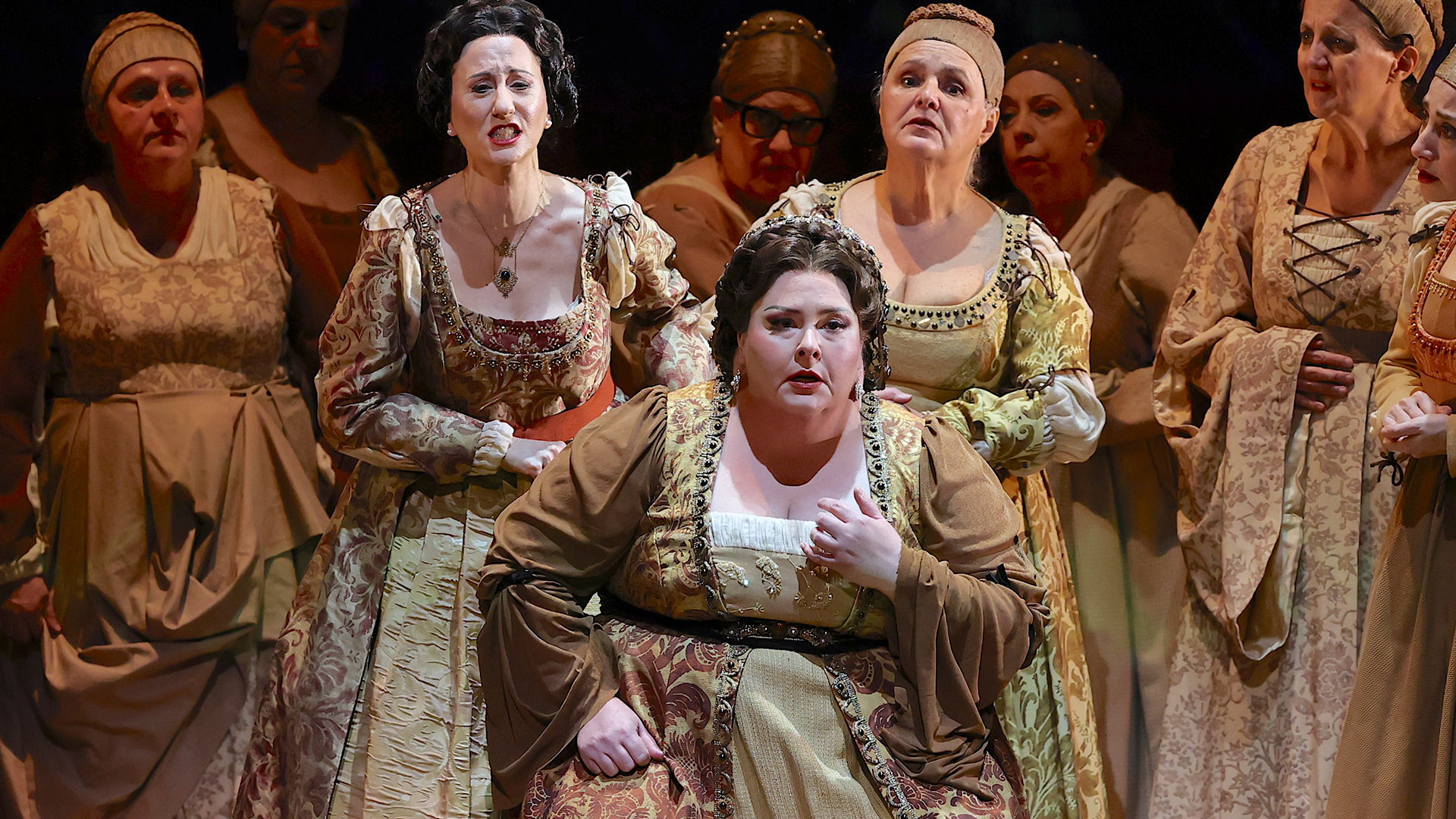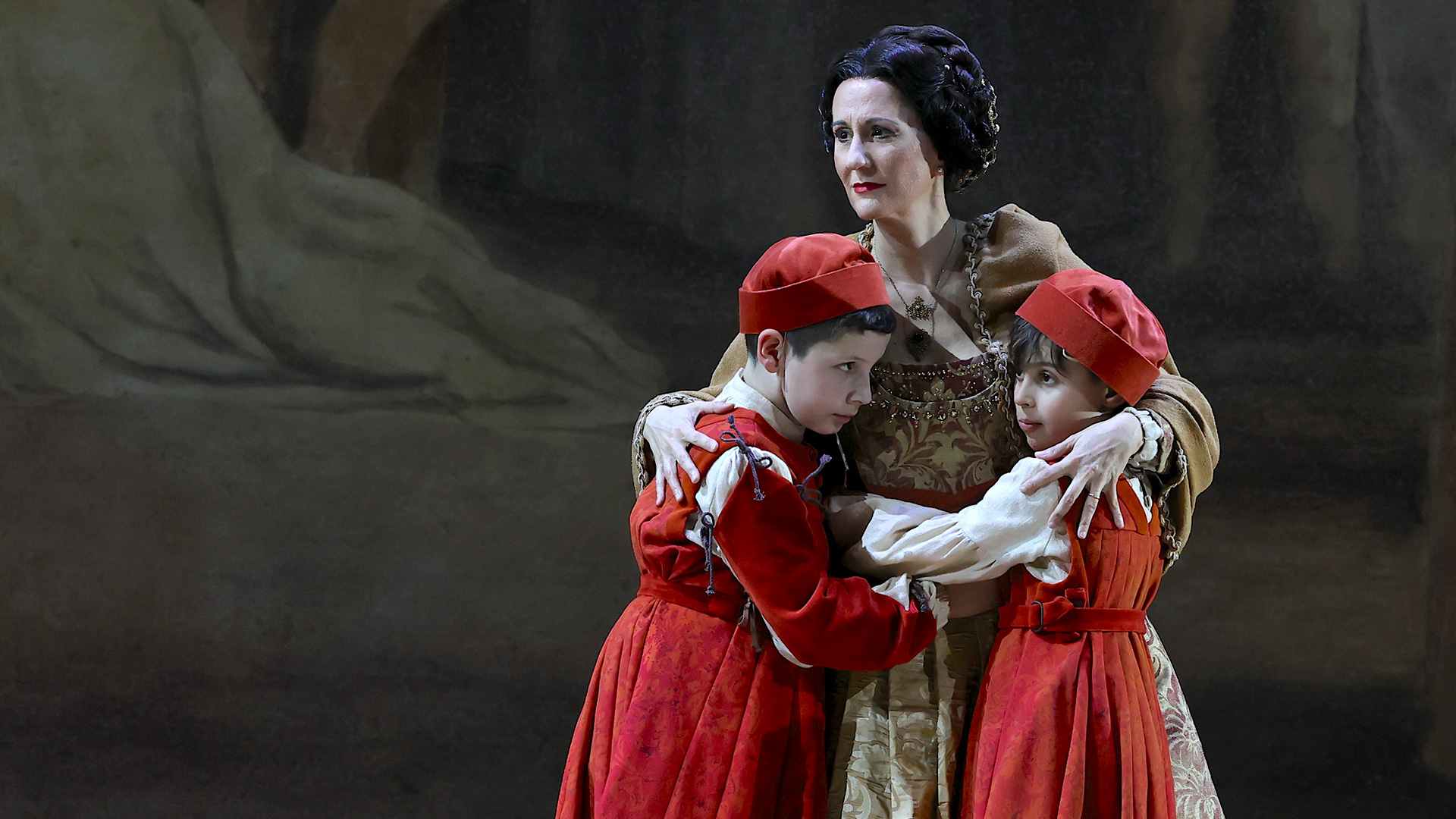Lyrical tragedy in three acts
Music by Giuseppe Verdi
Libretto by Francesco Maria Piave, da Byron
Francesco Foscari
Franco Vassallo
Leon Kim (1, 7)
Jacopo Foscari
Fabio Sartori
Giuseppe Gipali (1, 7)
Lucrezia Contarini
Angela Meade
Marigona Qerkezi (1, 7)
Jacopo Loredano
Antonio Di Matteo
Barbarigo
Saverio Fiore
Pisana
Marta Calcaterra
Fante
Alberto Angeleri
Antonio Mannarino (1, 7)
Servo del Doge
Filippo Balestra
Matteo Armanino (1, 7)
Conductor
and orchestrator
Renato Palumbo
Director and scenic designer
Alvis Hermanis
Costume designer
Kristìne Jurjàne
Choreography
Alla Sigalova
Lighting designer
Gleb Filshtinsky
Videos
Ineta Sipunova
Staging
Fondazione Teatro Carlo Felice di Genova
Orchestra, chorus and Technicians
of Opera Carlo Felice Genova
Chorusmaster
Claudio Marino Moretti
Ballet Training Foundation
Dance and Entertainment “For Dance” ETS
Staging director
Luciano Novelli
Stage musical director
Paloma Brito
Répétiteurs
Sirio Restani, Antonella Poli
Stage musical assistants
Andrea Gastaldo, Anna Maria Pascarella
other Choir Master
Patrizia Priarone
Master to the lights
Caterina Galiotto
Master to supertitles
Simone Giusto
Head of musical archives
Simone Brizio
Scenic director
Alessandro Pastorino
Vice scenic director
Sumireko Inu
Consolle supervisor
Andrea Musenich
Stage technicians foreman
Gianni Cois
Electrician foreman
Giuseppe Carbone
Tooling foreman
Tiziano Baradel
Audio/video foreman
Walter Ivaldi
Head of tailoring, shoemaking, make-up and wigs
Elena Pirino
Assistant director
Luca Baracchini
Shooting choreography
Irina Kashkova
Costume design assistant
Alexandra Nikolaeva
Assistant lighting designer
Gianni Bertoli
Makeup and hair coordinator
Raul Ivaldi
Scenes, costumes and props
by Opera Carlo Felice
Footwear
C.T.C. Pedrazzoli
Wigs
Mario Audello
Sopratitoli
Prescott Studio
The opera in brief
By the early 1840s, Verdi was beginning to compose a large number of operas, at a faster pace than in the previous period. Already well-known and relatively established, the composer had then performed five titles, four for La Scala Theater and one for La Fenice Theater. In 1844 Ernani was staged in Venice in March; just a month later Verdi set to work composing Due Foscari. Thus began the period that would later be called the ‘jail years,’ in which one opera would be followed by the next, eventually producing as many as two or three titles a year.
Already with Ernani, Verdi had decided to move toward subjects in which the psychology of the characters was a more central element and continued along the same lines with I due Foscari, choosing the theater opera The two Foscari, by Byron, published in 1821, a “delicate and very pathetic” subject, which he worked on with librettist Francesco Maria Piave. Byron was inspired by the figure of Franceso Foscari, doge of Venice from 1423 to 1457, taking up the story with some minor changes. Both Byron’s text and Piave’s version see the theme of the conflict between duty and feeling as central.
The protagonists deserve the most psychological insight, starting with Francesco Foscari, a doge and a father, unable to prove the innocence of his son accused of murder, and thus forced to apply the law to his detriment. Jacopo for his part is a character who has some traits of the fallen romantic hero. Inextricably bound to his Venice and his family, unjustly accused, on the one hand he tries to return, to convince his father, to find comfort in the hope of reuniting with his wife and children; on the other hand he is the victim of very negative feelings and suffers the events around him without trying to determine his own fate himself. Similarly, his wife, Lucretia, remains helpless in the face of the reality of the facts and follows the plot developments with growing despair. The counterpart to this trio is the antagonistic figure, Jacopo Loredano, advisor to the Council of Ten and arch enemy of the Foscari. The latter is determined to take revenge on young Foscari, as the murder he was accused of was that of two members of his family. He is in fact the only character in whom there is no conflict: he ardently desires Jacopo’s exile and Francis’ deposition, acts accordingly, with strength and determination, and achieves an overwhelming victory over both.
The main characters Francesco, Jacopo and Lucrezia live in an almost exclusively reflective dimension, their feelings are thus the central element of the action. Precisely in order to emphasize the many emotional facets that are portrayed on stage, Verdi’s approach in the transposition to music was aimed at seeking maximum expressiveness, from the most delicate lyricism devoted to feelings of longing and hope, to the relentless tragic intensity of the most dramatic moments. Although this is one of Verdi’s earliest operas, we can already discern the traits that would characterize his style, both in orchestration and in the use of harmony, and that would make him an immortal composer within a few years.
